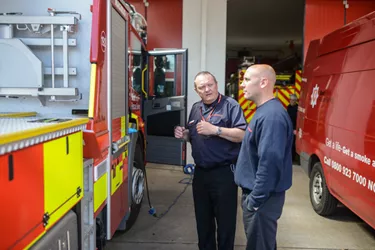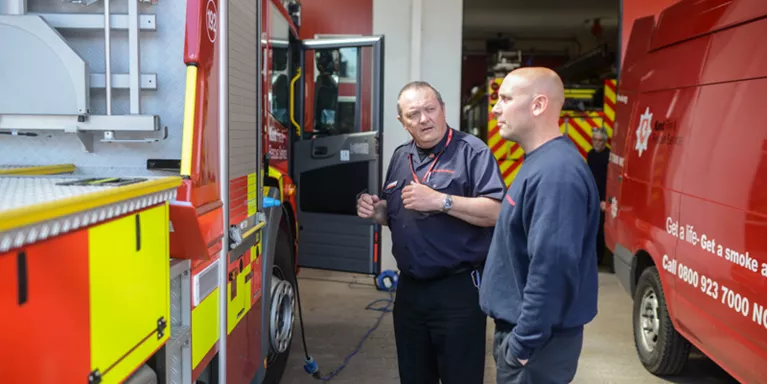How I look after my wellbeing as a peer supporter
Amanda is a peer supporter in her ambulance service. We asked her about how she looks after her own wellbeing in her role to help others looking to become a peer supporter themselves.
What motivated you to become a peer supporter?
In 2012 I suffered a mental breakdown. I felt there was little point talking to anyone as they couldn't possibly understand how I was feeling. I fell into a deep despair and attempted to take my own life.
Talking is the best way forward and I wanted to help people do that without fear of being shamed or ridiculed.
Afterwards, I became a Blue Light peer supporter to be that person I never had. Talking is the best way forward and I wanted to help people do that without fear of being shamed or ridiculed.
What is the best thing about being a peer supporter?
I find it so rewarding to help people just by listening and helping them find the support they need to get through difficult times. It's great to be able to show people in crisis that there is a way through their situation. I'm living proof of that.
Each "thank you" means everything to me. It's a great feeling to see someone who was on the brink of despair get back to being their old self again.
What has been most challenging about being a peer supporter?
Mental health is relentless, and it's often in the small hours when people feel most vulnerable and isolated. So as much as possible I make myself available around the clock – but you have to set yourself boundaries when supporting colleagues so you don't become unwell yourself.
How does being a peer supporter impact on your wellbeing and mental health day-to-day?
Helping others gives me a great sense of achievement and it formed part of my own recovery. I still suffer with depression and anxiety, and knowing I am helping someone else really lifts my mood.
Being a peer supporter also makes me a better clinician; I have more empathy with mental health patients and a better understanding of their problems.
Being a peer supporter also makes me a better clinician; I have more empathy with mental health patients and a better understanding of their problems.
What do you do day-to-day to look after your wellbeing and mental health as a peer supporter?
If I'm feeling overwhelmed then I take a step back. It helps me refocus and recharge my batteries. I try not to be too hard on myself if I have a bad day, or if I feel I haven't coped as well as I should have. If I am having difficulty in coping, I know I can count on my trusted friends for support if I need it.
What is the key thing you have learnt about looking after your mental health from being a peer supporter?
The most important thing is to look after yourself as well as others, and to have someone you can talk to about how you are feeling if you need it.
If you felt overwhelmed by your role as a peer supporter, what would you do? Has this happened?
Recently my ambulance service had to deal with the Manchester Arena bomb attack, and I have supported ambulance service staff who were involved. Listening to what they witnessed that night has been emotionally draining, and I felt exhausted after a couple of weeks.
Even something as simple as checking in with a text message makes a huge difference.
But I'm very lucky to have an amazing team around me, and while we have all been providing that support to the staff who needed it, we have also been looking out for each other too.
Even something as simple as checking in with a text message makes a huge difference.
What has been the biggest support to you as a peer supporter?
My core team are the ones who get me through any bad days. And we have had great support from our chief executive and head of organisational development. They recognise how important peer supporters are for the wellbeing of our staff.
At our recent annual staff awards, the Chief Executive gave his Special Commendation Award to the mental health and wellbeing champions and I was very proud to have accepted it alongside some of my other peer support colleagues. It just goes to prove the support we have had from above.
Is there anything you would say to new or existing peer supporters about looking after their own wellbeing?
It's important to look after yourself and to ask for support if you start to feel a little overwhelmed. Always have a trusted someone you can speak to when you need it. Being a peer supporter is a very rewarding thing to do, but it's crucial that you look after yourself first and foremost.


Information and support
When you’re living with a mental health problem, or supporting someone who is, having access to the right information - about a condition, treatment options, or practical issues - is vital. Visit our information pages to find out more.
Share your story with others
Blogs and stories can show that people with mental health problems are cared about, understood and listened to. We can use it to challenge the status quo and change attitudes.















